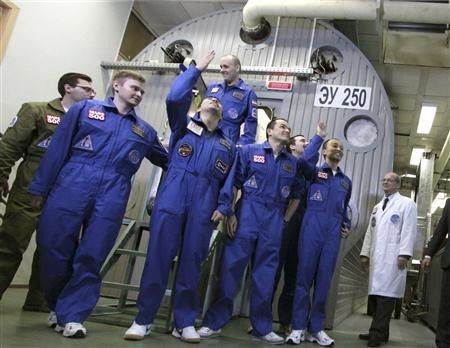Men Return to Earth After 'Manned Mission to Mars'

Six men came back to Earth Friday - without really leaving the planet - after spending 520 days on a simulated space mission removed from civilization.
After leaving a mock space ship in Russia, the crew announced that the mission, meant to immitate a space venture to Mars, was a success. Man could handle the stresses of venturing out to Mars, the six said.
The experimental mission launched on June 3, 2010, and the six would-be astronauts left their mock space ship at 6 a.m. EDT Friday, according to space.com.
The six-man crew consisted of French engineer Romain Charles, Italian engineer Diego Urbina, Chinese astronaut trainer Wang Yue, Russian physiologist Alexandr Smoleevski, Russian surgeon Sukhrob Kammolov and Russian engineer Alexey Sitev.
The Russian Institute for Medical Problems and the European Space Agency sponsored the mission that included constant video surveillance to determine if the psychological wear and tear of a potential Mars space trip made any future red planet missions feasible.
Today, after a motionless trip of 520 days, I'm proud to prove, with my international crewmates, that a human journey to the red planet is feasible, Charles said. We have all acquired a lot of valuable experience that will help in designing and planning future missions to Mars. We're ready to embark on the next spaceship going there.
The simulation involved Mars walks scientific experiments and the collection of medical data, the Digital Journal reported. Mark Belakovski, vice-director of the simulated mission told French newspaper Le Monde the six-man Mars crew will have to undergo routine medical evaluations at the Russian Institute for Medical Problems until Dec. 4 because, being isolated from the world for a year and a half, they are more susceptible to disease.
A real mission to Mars, however, would last three years and force manned crews to deal with weightlessness, which decreases bone and muscle mass over extended periods of time, reported the Digital Journal.
© Copyright IBTimes 2024. All rights reserved.





















